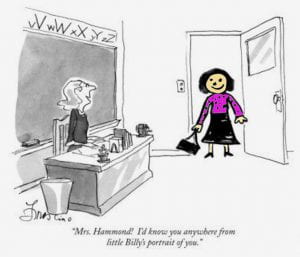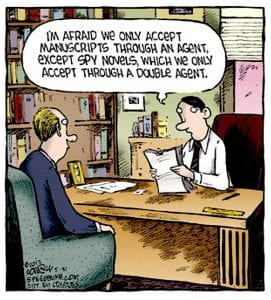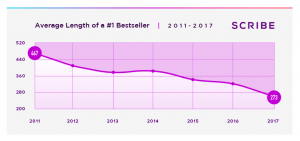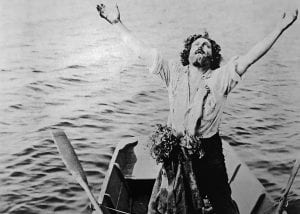 Here’s a question I have to ask myself often—how well do I know my characters? Yes, I can describe them (features like hair, makeup, dress, etc.) but do I really know them? A few years ago I met a long-lost half-brother. We talked and he was quiet, reflecting on a father he hardly knew. But, I never understood him until he told me about a letter he had written to his father. The response he got, and the way he reacted, gave me clues about the depth of his feelings. When I saw my half-brother walk away, he had the same gait as my father and my eyes were opened fully to his character. In writing, there is that elusive search to reveal a character by his or her actions, rather than through description. They give away their true identity with a gesture, body position, speech and response. In my latest novel, many of my characters are build upon people I know quite well, but others have to be fabricated from observations, etc. My goal is to have none of my characters appear flat (as in this cartoon). And, here’s a secret, one of the key characters in my book is a little like me—Oh, very well, a lot like me!
Here’s a question I have to ask myself often—how well do I know my characters? Yes, I can describe them (features like hair, makeup, dress, etc.) but do I really know them? A few years ago I met a long-lost half-brother. We talked and he was quiet, reflecting on a father he hardly knew. But, I never understood him until he told me about a letter he had written to his father. The response he got, and the way he reacted, gave me clues about the depth of his feelings. When I saw my half-brother walk away, he had the same gait as my father and my eyes were opened fully to his character. In writing, there is that elusive search to reveal a character by his or her actions, rather than through description. They give away their true identity with a gesture, body position, speech and response. In my latest novel, many of my characters are build upon people I know quite well, but others have to be fabricated from observations, etc. My goal is to have none of my characters appear flat (as in this cartoon). And, here’s a secret, one of the key characters in my book is a little like me—Oh, very well, a lot like me!
thrillers
Monday Humor…

Easier to Trim or Add?
I watched one of those self-promoting videos in which there was a discussion on whether it is easier to trim words from a novel or add them. At first, I agreed with the notion that trimming was easier—after all, there is something immediate to work with. In my first novel, I found trimming easy to do as part of the editing process. This happened for me with my latest novel too.  However, and this is where I differ, once I have done a heavy edit and trim, I find it easier to add to the plot and, therefore, the text. Like the tide creeping in, my additions give more depth. I guess others prefer to work the other way (and reduce their lengthy manuscript). To summarise:
However, and this is where I differ, once I have done a heavy edit and trim, I find it easier to add to the plot and, therefore, the text. Like the tide creeping in, my additions give more depth. I guess others prefer to work the other way (and reduce their lengthy manuscript). To summarise:
- My draft manuscript finished at 76,000 words
- Trim/Edits dropped the word count to 74,000 words
- Adding more plot detail and two more chapters for improved depth of plot, etc. lifted the word count to 84,500. The key lesson is to let your manuscript be open to the changing tide of thought, refinement and additions. The words may go out and drain the book length; or come back in—often with crashing waves of inspiration—to enhance your writing and complete it. Only you will know for sure when the landscape of your novel looks best. For some, it is when the tide has gone out; for others (like me), it is when the tide is in and covering the early draft.
Average Book Length is Hardly Average
In an earlier post, I discussed book lengths. An interesting aside—when researching this topic on the internet, pay close attention to the date of the article or discussion. Here’s why:

You will notice that this research, based on the New York Bestseller list (see full article here) shows a very clear trend down from 467pp (in 2011) to 273 (in 2017)! In my new thriller, my draft manuscript hovered around 74,000 words. Now, following severe editing and adding critical plot and character details, it is sitting at 82,000 words. At this count, the book feels ‘right’. What do I mean by feel? I mean exactly that. Pick up a 74,000 word book and it feels a bit on the thin side. Now, try the 82,000 word novel and it has a good heft; a sense of substance, and I know I will be reading a story with a well—developed plot and depth of detail. Of course, this assumes that the story is well—written, and the plot exciting, with many twists and turns.
The Search for a Literary Agent

Searching for a Literary Agent is a bit like looking for your home in a snow storm. Why ‘home’? Because I am looking for an agent who fits me—who enjoys my writing and connects with me and wants to promote my work; the kind of agent who would feel comfortable at my place, and enjoy my company and conversation. For the textbook I wrote, the agent (and publisher) was professional, yet warm, and had a sense of purpose with humour. I liked that and it helped me stay on track and meet deadlines. Do I have an agent for my new book? Not yet, but I am hopeful for one soon. You, dear follower, will be the first to know! Meanwhile, I keep looking, which involves researching potential agents—looking up their profiles and youtube videos and twitter accounts, etc. to find the right fit. More on agent searching soon!
The Hook and the Divine Moment
Hello again! Publishers look for the ‘hook’ in a thriller, etc. As writers, we look for the ‘divine moment’ that gives us the hook, or at least an important plot. My second thriller (shh, no name yet) was inspired by a small newspaper clipping that mentioned submarines—which explains the picture below :-). The article fascinated me and led to a world-wide hunt (including visits to the USA, Croatia, Gibraltar, etc.) for more information. I am grateful for contacts who expanded my ‘Aha!’ moment, and provide fresh insights to help put the book together. Yes, divine moments are key to my writing!

Editing technique during writing
 David McGowan, based in Liverpool in the UK, made the following comment during an interview:
David McGowan, based in Liverpool in the UK, made the following comment during an interview:
“From my first novel to my second, I have found that my writing is a lot more developed, but I think editing your work well is as important as writing a good story.
I also find that editing the last couple of scenes I have written when I sit down to write pulls me back into the story and helps me to focus and feel part of the world I have created.”
This is good advice gives cohesion to writing. Thanks, David. You can check out the full interview here.
Write Different!
 I had to answer this question for myself: “How true is my writing to me?”
I had to answer this question for myself: “How true is my writing to me?”
What does this mean? Put it another way; am I writing for me, or for others? The artist in me wants to write in my voice, my style. I want my writing to reflect my thinking—the way I see my world and how I connect dissimilar objects and events. Steve Jobs, of Apple fame, had a great ad campaign called, “Think Different“. That sums it up for me. I need to “Write Different” as an author. I must be true to myself and not have to copy another author. Yes, I should learn from others, but develop my own style. I cannot stand the works of Dan Brown, yet I learned from him. Great artists break established ways of doing things—that is how new styles develop in Art. Writing is no different. I am still learning, but getting closer to my own style. How do I define that style? Here’s an example. During a trip to Venice I saw a lady wearing a fur coat, yet I never came across any cats. I saw an immediate connection between cat and coat! Unrelated events can be connected through the imagination and it is through “thinking different” that I am learning to “write different”, with a sense of discovery and, yes, fun. I love writing funny stuff in thrillers! I just hope me readers enjoy this style too!
How is the Discipline of Writing Book #2 Going?
I wasn’t really envious – well, a little! A friend was now writing his 3rd book and I was struggling to make progress on my #2. But, I reassured myself, Rome wasn’t built in a day and, besides, mine was more technical – requiring considerable research. And, I had no research assistant! The funny thing was, although about half-way through novel two, I had the last chapter sorted. Then, smug, smug, I was sure that I had gone well past the middle when a word count (hate that tool) revealed that I had only completed 32,000 words. Dang it! Still, this wake-up shook me into being more disciplined and, I am proud to say, my writing has improved. I am now into a routine of morning writing, followed by a quick evening review. I also determine to try and keep my weekends free – in the same way as I did when teaching.
